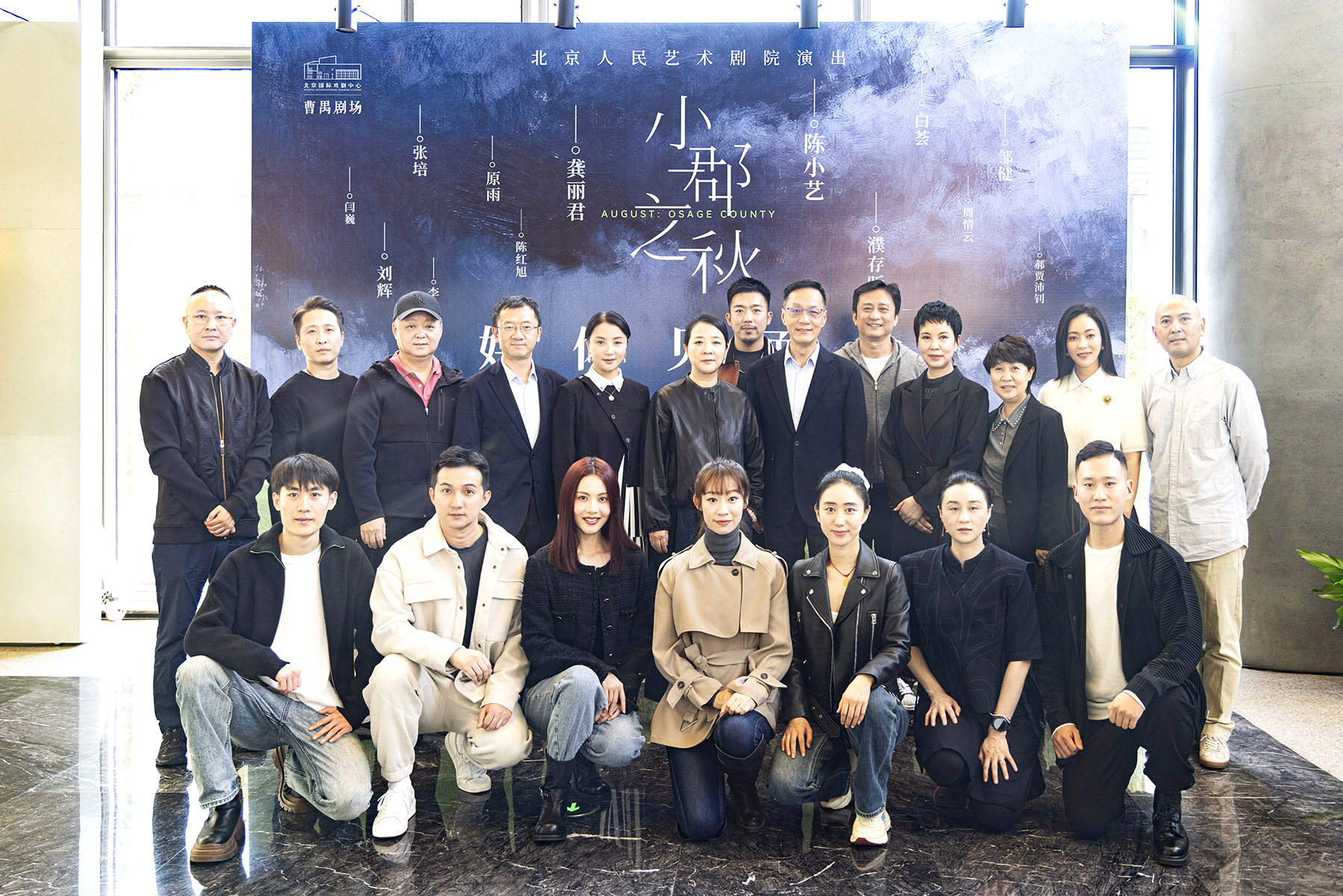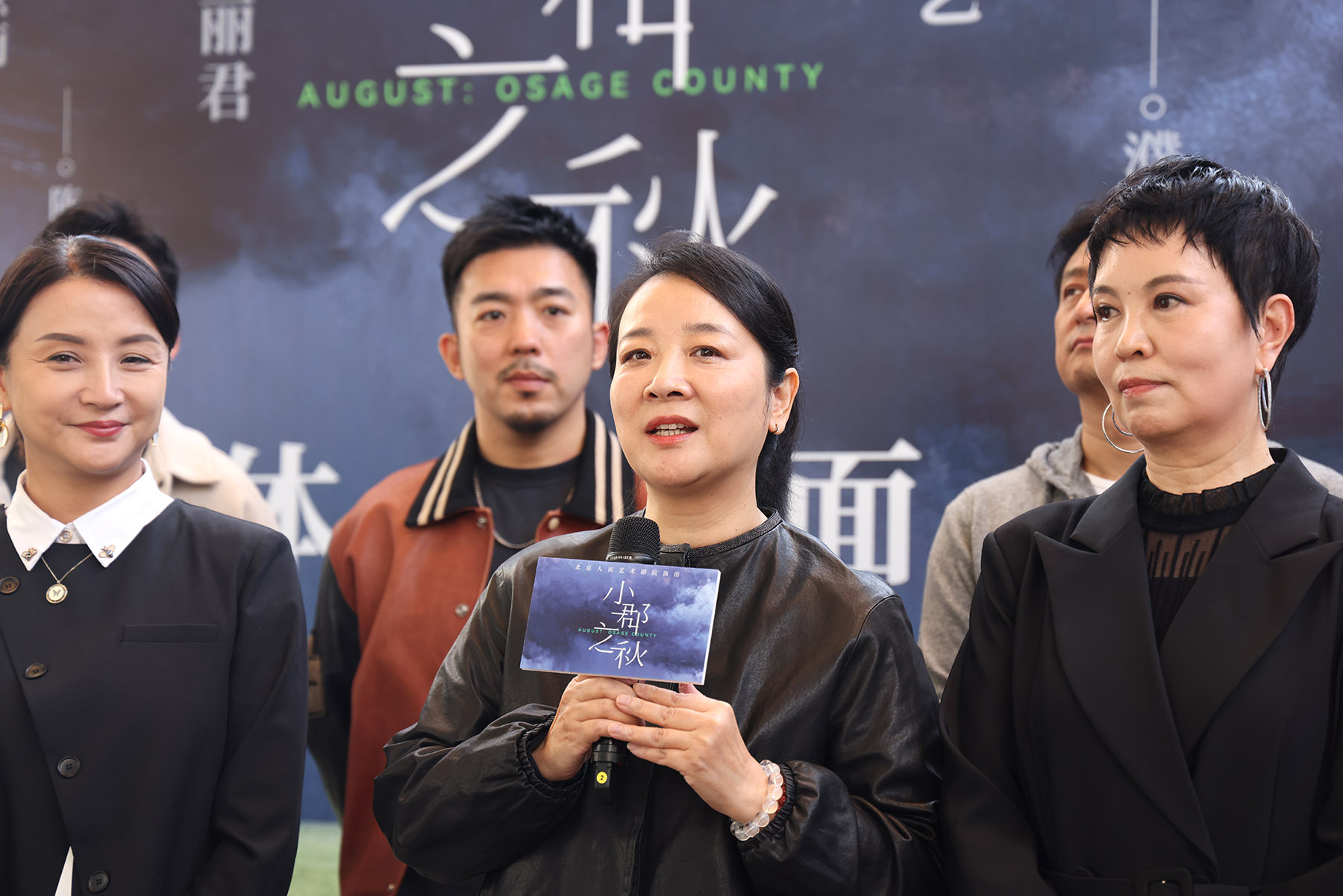Veteran female artists adapt American play for the Chinese stage, exploring family dynamics and the various struggles women face, Chen Nan reports.

The 2008 Pulitzer-winning August: Osage County, an American play by playwright Tracy Letts, is set to make its mark on Chinese stages with a new adaptation of the same title.
Produced and performed by artists of the Beijing People's Art Theatre, the Chinese adaptation of the play will premiere at Cao Yu Theatre in the capital on Nov 13, with shows running until Nov 29.
Directed by Tang Ye and Gong Lijun, the production is an exciting fusion of cultural nuances, shedding light on the complex web of family dynamics and unresolved secrets.
READ MORE: Reviving classics to retell timeless stories
Set in the stifling heat of August in a quiet corner of Oklahoma, Letts' original play tells the story of the Weston family, thrown into turmoil after the sudden disappearance of the father, Beverly Weston.
As the family members, each struggling with their personal problems, reunite under one roof, decades of secrets, betrayals, and emotional wounds slowly rise to the surface.

The mother, Violet, is a cruel, sharp-tongued woman whose troubled relationships with her daughters unravel before the audience's eyes, reflecting not just personal struggles but also generational conflicts.
"This play is filled with suspense from start to finish, and emotional depth. We are confident about adding this compelling foreign drama to our repertoire, continuing a tradition of bringing international works to Chinese audiences," says Feng Yuanzheng, president of the Beijing People's Art Theatre, who also notes that the theater's Chinese stage adaptation of classic plays, such as Death of a Salesman by Arthur Miller and The Gin Game by D.L.Coburn, have previously explored family struggles, resonating deeply with Chinese viewers.
Feng notes that the script of August: Osage County was recommended and translated by famed Chinese-born American actress Lisa Lu, 98. She also translated The Gin Game for the Beijing theater.
"Our hope is that people leave the theater feeling not just entertained, but also with a sense of catharsis and reflection on their relationships," he adds.
Directors Tang and Gong are both seasoned female theater artists who have a distinct vision for this adaptation.
Known for their unique sensitivity to female perspectives, they bring a deep emotional resonance to the stage. Their previous collaboration on adapting Night, Mother by Marsha Norman, also a winner of the Pulitzer Prize for Drama in 1983, was met with warm feedback.

Now, with Letts' play, they continue to explore relationships within the context of marriage, family and personal identity.
"With August: Osage County, we are given the opportunity to look at a woman's world from multiple angles. The characters are all burdened by societal expectations and family history. We understand these pressures in a way that allows us to depict them with nuance and honesty," says Tang. "This is a play about survival, emotionally, psychologically, and physically. For women like Violet and Barbara (the eldest daughter), the family isn't just a place of love, but also a battlefield."
The role of Barbara, played by Chen Xiaoyi, is central to this emotional landscape. Despite her sharp, independent demeanor often clashing with her mother, Barbara is not immune to personal struggles.
"The roller-coaster of emotions in Barbara's life during this short period is one of the things that drew me to this script," says Chen. "As women, we're often expected to balance many roles, including daughter, wife and mother. Barbara is no different. She must confront not just her family's secrets but her own self-worth. It's a powerful role to portray, especially as a woman. We carry so much, and sometimes, it's too much to bear."
ALSO READ: To be, or not to be Hamlet today
Gong, also a veteran actress, plays the role of Violet. "This play is so rooted in the complexities of female relationships — the tension between mothers and daughters, the expectations placed on women, and the emotional labor that often goes unseen," she says. "As a director, I wanted to ensure that Violet's toxic love for her daughters is felt, as something born from her own suffering. It's easy to judge Violet from the outside, but I wanted the audience to see her struggles with the same empathy we offer to our own family members, even when they hurt us.
"I recognize that, as women, we are often expected to hold everything together: the family, the home, the emotions. In the play, this pressure is laid bare. The set represents this — on the outside, the house appears to be like any other family home. But inside, it's full of cracks, of unresolved pain. It's a powerful metaphor for what many women experience every day," adds Gong. Referring to the stage design, which features minimalist elements with a rotating, three-story house, the set symbolizes the "cage" in which the family members find themselves trapped.
Contact the writer at chennan@chinadaily.com.cn


